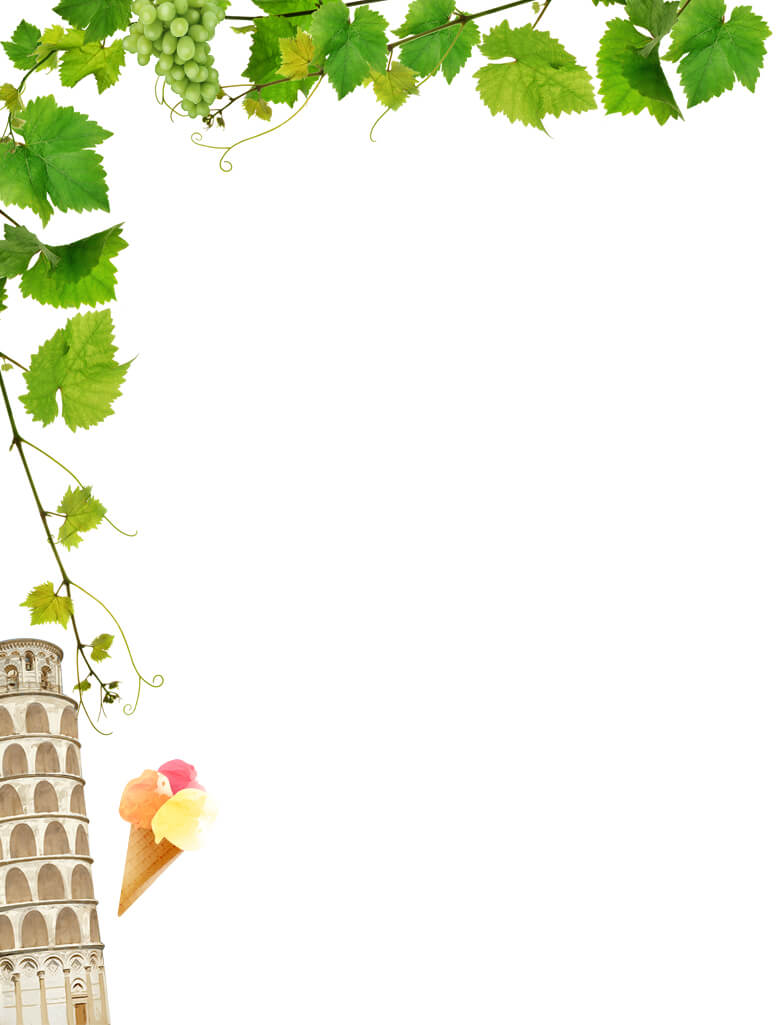

Everyday ELLA ideas for making art
Art is important to children. It gives them a chance to express themselves.
Children learn by doing. As they draw, paint and make things they learn about the world, colour, shape and size. Making art helps children think creatively and problem-solve.
You can introduce your child to information about other cultures and countries by creating art. Talk about the traditions, language or landscape of different cultures and places. You can help your child see beauty in the world.
Easy ways to get creative at home
Blossom printing
- Draw a tree branch onto paper.
- Place a kitchen sponge in a food container or tray.
- Add pink paint to the sponge.
- Press the base of a plastic drink bottle into the paint.
- Press the base of the bottle onto the paper.
Blossoms around the world
Japanese people celebrate the different seasons with festivals, such as the cherry blossom festival in spring.
The cherry blossom is considered Japan’s national flower. Countries including Korea, India, China, France, Germany, Spain, Afghanistan and Iran also have a cherry blossom season.
In Vietnam the peace blossom is a symbol of prosperity and good fortune.
Mosaic
- Cut coloured paper into small squares.
- Get a clean tin can. Cut enough paper to wrap around it.
- Glue the coloured squares to the paper to make a mosaic pattern.
- When the pattern is dry, wrap the mosaic around the tin.
- You can protect the tin with varnish or adhesive wrap.
Connections between traditional and contemporary mosaics and languages
Arabic: The Presidential Palace (Abu Dhabi, United Arab Emirates)
French: The Palace of Versailles (Paris, France)
Greek: Kasta Tomb (Amphipolis, Greece)
Italian: Basilica of San Vitale (Ravenna, Italy)
Spanish: Alhambra Palace (Granada, Spain)
Turkish: Hagia Sophia (Istanbul, Turkey)
Masks
- Cut a paper plate in half. Keep one half as the mask.
- Cut a triangle for the nose and add it to the mask.
- Cut out circles for the eyes.
- Add elastic to hold the mask onto your child’s head, or attach the mask to a stick so it can be held up to their face.
- Decorate the mask with markers, paint, feathers, sparkly things, etc.
Masks around the world
In Indonesia, wooden masks are used in theatrical performances and ceremonies.
In China, masks are used in many rituals, celebrations and dance performances.
In Japan, carefully carved wooden masks reflect emotions and are used for theatre and home decorations.
Most ancient Greek cities had a theatre. Actors wore masks to represent their characters.
In Italy’s Venice, people wore masks to hide their faces. Masks were made from papier-mâche and were decorated with fur, fabric, gems or feathers. People from many countries wear masks at carnivals, balls and parties.
Stained glass
- Cut differently coloured cellophane into small pieces.
- Fold a sheet of black paper in half.
- Draw a design on the paper. Cut it out. Unfold the paper again.
- Place the paper on the sticky side of a sheet of contact. Trim.
- Paste coloured pieces of cellophane into the sticky open space.
- Attach the sheet to a window and let the sun shine through it.
Connections between famous stained-glass windows and languages
Arabic: Nasir al-Mulk Mosque (Shiraz, Iran)
French: Sainte-Chapelle (Paris, France) and Chartres Cathedral (Chartres, France)
German: Neuer Dom (Linz, Austria)
Greek: Cathedral Basilica of St. Dionysius the Areopagite (Athens, Greece)
Italian: Siena Cathedral (Siena, Italy)
Spanish: Palau de la Música Catalana (Barcelona, Spain)
Turkish: Blue Mosque (Istanbul, Turkey).
Line painting
- Give your child a small bucket of water and a paintbrush.
- Use a large piece of timber, or an area of concrete or tiles outdoors.
- Write or create patterns on the surface with the brush and water.
- When the writing or patterns are dry, do some more.
Uses for special line and calligraphy work around the world
The Arabic-speaking world has a long tradition of calligraphy (artistically presented handwritten script). It is used to celebrate the Qur’an and to decorate buildings and objects.
In China and Japan there is a long tradition of calligraphy, using an ink-and-wash technique.
In Indonesia, batik and ikat are techniques used to create textiles with beautiful patterns.
Mehndi is an Indian form of body art using henna.
Paper art
- Decorate a piece of paper or use patterned paper.
- Fold the short edge of the paper over.
- Turn the paper over and fold it again the same way until you can go no further.
- Fold the whole thing in half to make a fan.
- Hold the base in place with staples or fold it in half and tie it with string.
Paper art around the world
In China, paper lanterns are used as decoration, especially at Chinese New Year.
Origami is the Japanese art of paper folding.
Jong-i jeobgi is the Korean word for paper-folding art.
In Germany, children are given paper cones full of small gifts such as stationery on their first day of school.
Copyright statement
ELLA is funded by the Australian Government Department of Education, Skills and Employment and is managed by Education Services Australia. © 2021 Commonwealth of Australia, unless otherwise indicated. This material, other than Commonwealth trade marks in The Polyglots characters and The Polyglots logo, may be used in accordance with the Creative Commons BY-NC 4.0 licence, unless otherwise indicated.
